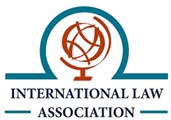About the ILA Study Group
The International Law Association (ILA) Study Group on the changing role of cities in the international legal order begun its work at the 2018 biannual ILA conference in Sydney, at which a panel discussion on the theme of 'Cities at the Frontiers of International Law and Global Governance' was organised. The Study Group is co-chaired by Janne Nijman, University of Amsterdam, and Helmut Aust, Freie Universität, Berlin.
The mandate of this Study Group is to examine the changing position and role of cities in international legal order. This relates to the following key issues:
- What does the internationalisation of the city mean in legal terms? What are the legal implications of cities stepping up to the international stage? What is the impact of the internationalisation of the city on the international legal order? How is the changing international legal order impacting the world’s cities?
- To what extent is international law starting to define the legal status and government of cities?
- Are there specific problems attached to the role of cities as objects of international law? Is the development of direct obligations for cities under international law a challenge to the traditionally held view that every state decides for itself how to implement international law?
- Have cities become accepted as subjects of international law? If not, is there a process towards recognition of such a status? And by which standards can international law measure the emergence of a new category of subjects?
- How does the emerging role of cities impact on law-making processes in international law? To what extent can cities contribute to such processes? What are the specific legitimacy concerns raised by this development?
The discussions of the Study Group at the 2018 biannual ILA Conference in Sydney generated the insight that there is an urgent need for a more empirical basis on the international law-related practices of cities. The scholarship of international law has a long tradition of assembling and systematising practice. Historically, this was of course done first and foremost with respect to the practice of states which is collected in different publications, some focused on the practice of a given state, others focusing on specific topics. In recent years, also the practice of other actors has been systematically collected and presented, as for instance in the case of the ICRC studies on customary international humanitarian law. The discussions in Sydney spurred the idea of building on the well-established format of country reports which are regularly used to elucidate the practice of states in a given field. To a certain extent, the city reports can be seen as a continuation of such an endeavour, while also being playful and creative with respect to the collection of the practices of actors which are to date often overlooked in international law.
More information on the International Law Association (ILA) can be found here.

